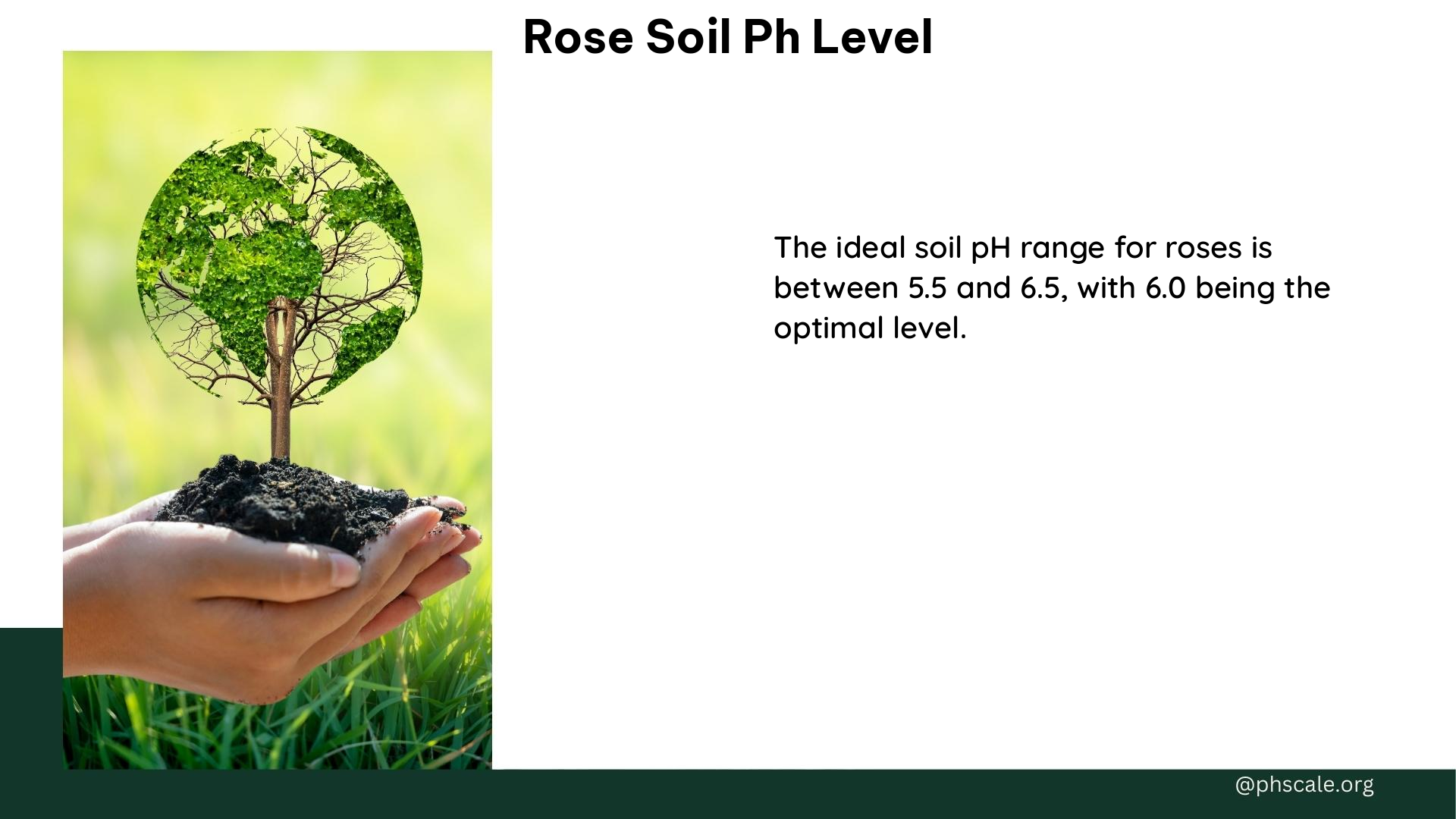The ideal pH level for rose soil is generally considered to be between 6.0 and 6.9, with 6.5 being the most optimal. Maintaining the proper soil pH is crucial for the health and growth of your rose plants, as it directly affects the availability of essential nutrients. In this comprehensive guide, we’ll explore the importance of rose soil pH, how to test and adjust it, and provide practical tips to ensure your roses thrive.
Understanding the Importance of Rose Soil pH
The pH level of your rose soil plays a crucial role in the overall health and performance of your plants. Roses prefer a slightly acidic to neutral soil, which allows for the best absorption of essential nutrients such as nitrogen, phosphorus, and potassium. When the soil pH is outside the optimal range, it can lead to nutrient deficiencies, stunted growth, and even the development of diseases.
Nutrient Availability and pH
A soil pH between 6.0 and 6.9 ensures that all essential nutrients are readily available to the rose plants. If the pH is too acidic (below 6.0) or too alkaline (above 7.0), the availability of important nutrients like phosphorus, iron, nitrogen, and manganese can be greatly reduced, leading to various deficiencies and growth problems.
Optimal Soil Conditions for Roses
Roses thrive in well-drained, nutrient-rich soil with a slightly acidic to neutral pH. The ideal pH range of 6.0 to 6.9, with 6.5 being the most optimal, provides the perfect balance for roses to absorb the necessary nutrients and maintain overall plant health.
Testing and Adjusting Rose Soil pH

Regularly testing the soil pH is crucial to ensure your roses are growing in the ideal conditions. Here’s how you can test and adjust the pH of your rose soil:
Soil Testing
You can use a pH meter or a soil test kit to determine the pH level of your rose soil. These tools are readily available at local nurseries, garden centers, or online. Follow the instructions provided with the test kit to accurately measure the pH of your soil.
Adjusting Soil pH
If the soil pH is too acidic (below 6.0), you can add lime to raise the pH. Conversely, if the soil is too alkaline (above 7.0), you can add sulfur or aluminum sulfate to lower the pH. Be cautious when making adjustments, as over-application of these amendments can lead to other nutritional imbalances.
Monitoring and Maintaining Optimal pH
After making any pH adjustments, continue to monitor the soil regularly and make additional changes as needed. Aim to maintain the optimal pH range of 6.0 to 6.9 for your rose plants.
Organic Amendments for Soil pH Balance
In addition to chemical pH adjustments, incorporating organic matter into your rose soil can help maintain the optimal pH level and improve overall soil health.
Compost and Mulch
Adding compost or well-rotted organic matter, such as leaves, bark, or manure, can help buffer the soil pH and provide essential nutrients for your roses. Applying a layer of organic mulch around the base of the plants can also help retain moisture and improve soil structure.
Worm Castings
Worm castings, or vermicompost, are an excellent organic amendment that can help balance the soil pH while providing a rich source of nutrients for your roses.
Cover Crops and Green Manures
Planting cover crops or green manures, such as clover or rye, can help improve soil structure, increase organic matter, and contribute to a balanced pH level.
Regional Variations and Considerations
It’s important to note that soil pH can vary significantly depending on the region and local environmental factors. For example, soils in the eastern United States tend to be more acidic, while those in the western states are often more alkaline.
When growing roses, it’s essential to consider the specific soil conditions in your area and make adjustments accordingly. Consult with local gardening experts or extension services to better understand the typical soil pH ranges in your region and how to optimize the conditions for your rose plants.
Conclusion
Maintaining the ideal rose soil pH level of 6.0 to 6.9, with 6.5 being the most optimal, is crucial for the health and growth of your rose plants. By regularly testing the soil, making necessary adjustments, and incorporating organic amendments, you can create the perfect growing environment for your roses to thrive. Remember, understanding and managing the soil pH is a key factor in ensuring your rose garden flourishes.
References:
1. https://www.reddit.com/r/Roses/comments/q27u3r/i_tested_the_soil_where_my_roses_are_planted_and/
2. https://jessicaannealexander.com/garden-blog/2020/5/1/readying-the-ground-for-roses
3. https://www.sandiegouniontribune.com/2018/10/11/the-right-ph-level-is-vital-for-healthy-roses/
4. https://www.treloarroses.com.au/pH-Imbalance-Roses
5. http://www.santaclaritarose.org/BalancePH.html
